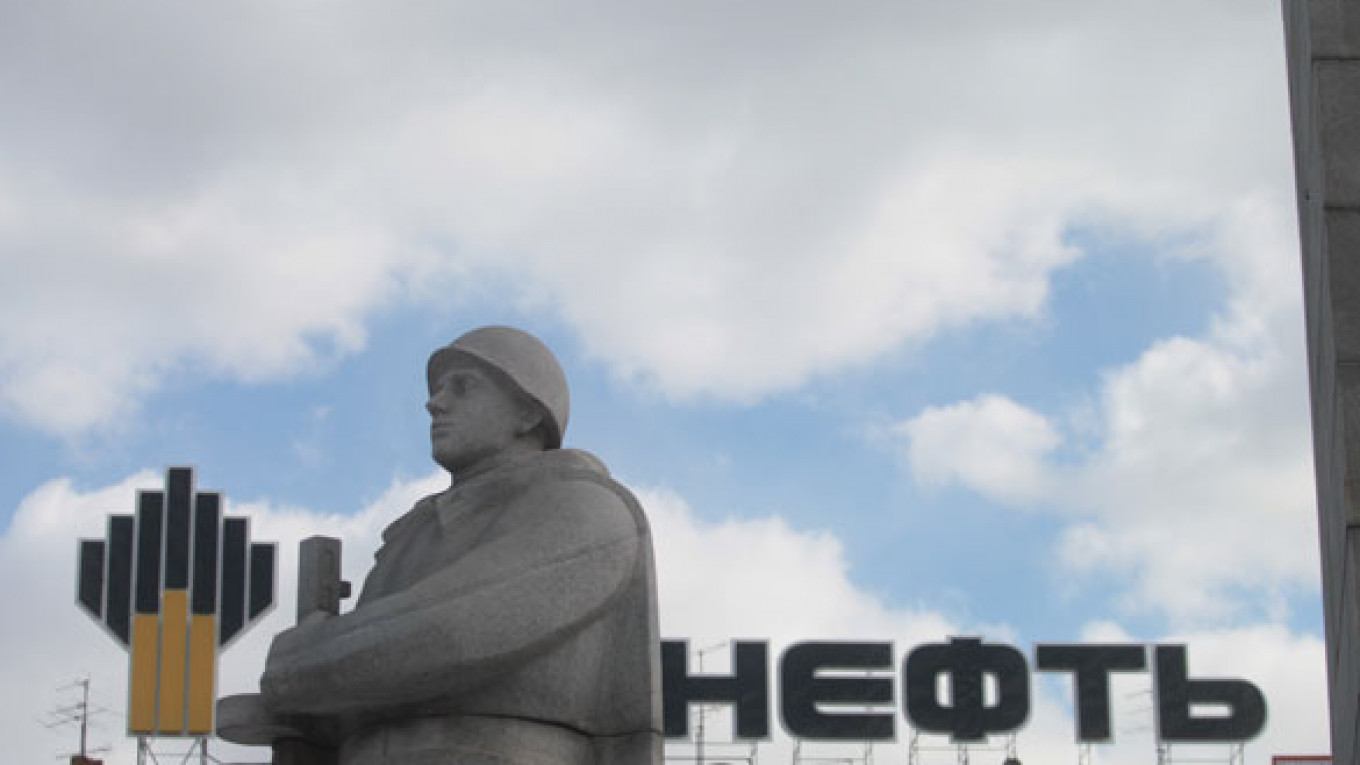Correction appended
ExxonMobil agreed to grant Rosneft access to North American projects in a deal for Arctic resources overseen by Prime Minister Vladimir Putin.
Exxon chief executive Rex Tillerson and Rosneft CEO Eduard Khudainatov signed agreements Monday at Putin's Novo-Ogaryovo residence near Moscow on setting up joint ventures to explore Russian offshore blocks in the Kara and Black Seas, which may cost as much as $350 billion to develop, Putin's deputy for energy, Igor Sechin, told reporters at the ceremony.
Rosneft is acquiring 30 percent of Exxon's unconventional La Escalera Ranch project in western Texas and Harmattan acreage in the Cardium formation in Alberta, Canada and gained the right to 30 percent of 20 Gulf of Mexico blocks, according to a statement from the companies.
"Now we take our relationship to a new dimension," Tillerson said to Putin, who is also president-elect. "We become global strategic partners."
Russia is offering billions of barrels of resources for access to projects abroad and the technology it needs to exploit its own complex deposits in increasingly harsh environments as traditional resources decline. Rosneft and Exxon, which agreed on the partnership in August last year, confirmed Monday an initial $3.2 billion investment to explore in the Arctic Kara Sea and the Black Sea.
"Any substantial reserves in the United States were inaccessible to Rosneft without Exxon's involvement," said Michael Kart, managing partner at Spectrum Partners, which manages $150 million in assets including Rosneft shares. "It is a political move rather than a purely economical one."
Exxon will be able to book reserves, Sechin said. The Kara Sea project may include 15 platforms and require $200 billion to $300 billion of investment, while the Black Sea project may cost about $50 billion, he said.
The companies will also study the potential for so-called tight oil fields in western Siberia, according to their agreements.
"Russia needs to open up new sources of oil and gas for the next decade while the Arctic is probably the last undeveloped province that a major producer such as ExxonMobil can access to replenish its reserve and production base," said Vyacheslav Smolyaninov, chief strategist at UralSib Financial.
Putin last week offered tax breaks of as long as 15 years to new offshore projects in Russia. Tillerson thanked Putin for the tax incentives.
Rosneft in turn aims to leverage the Exxon deal to expand internationally and add $100 billion to its value. Rosneft shares rose 0.4 percent to 210.89 rubles ($7) at the 6:45 p.m. close in Moscow, valuing the producer at about $75 billion.
Access to international reserves will cut a discount that investors assign Rosneft for being purely Russian, Khudainatov said in June last year.
Output in the Kara Sea blocks is too far away to be priced in today, Spectrum's Kart said. "It certainly gives some comfort that huge Arctic reserves are going to be realized with higher probability" given Exxon's involvement, he said.
Exxon replaced BP in the Kara Sea project with Rosneft last year. The British explorer's partners in Russia said their shareholder agreement gave the TNK-BP venture, Russia's third-largest oil producer, first rights to projects BP considered in the country.
Rosneft also invited LUKoil, TNK-BP, Surgutneftegas and Bashneft to jointly work on 12 offshore blocks, Khudainatov told reporters Monday.
Correction: In an earlier version of this article, Bloomberg incorrectly identified UralSib’s chief strategist as Chris Weafer. The position belongs to Vyacheslav Smolyaninov.
A Message from The Moscow Times:
Dear readers,
We are facing unprecedented challenges. Russia's Prosecutor General's Office has designated The Moscow Times as an "undesirable" organization, criminalizing our work and putting our staff at risk of prosecution. This follows our earlier unjust labeling as a "foreign agent."
These actions are direct attempts to silence independent journalism in Russia. The authorities claim our work "discredits the decisions of the Russian leadership." We see things differently: we strive to provide accurate, unbiased reporting on Russia.
We, the journalists of The Moscow Times, refuse to be silenced. But to continue our work, we need your help.
Your support, no matter how small, makes a world of difference. If you can, please support us monthly starting from just $2. It's quick to set up, and every contribution makes a significant impact.
By supporting The Moscow Times, you're defending open, independent journalism in the face of repression. Thank you for standing with us.
Remind me later.






